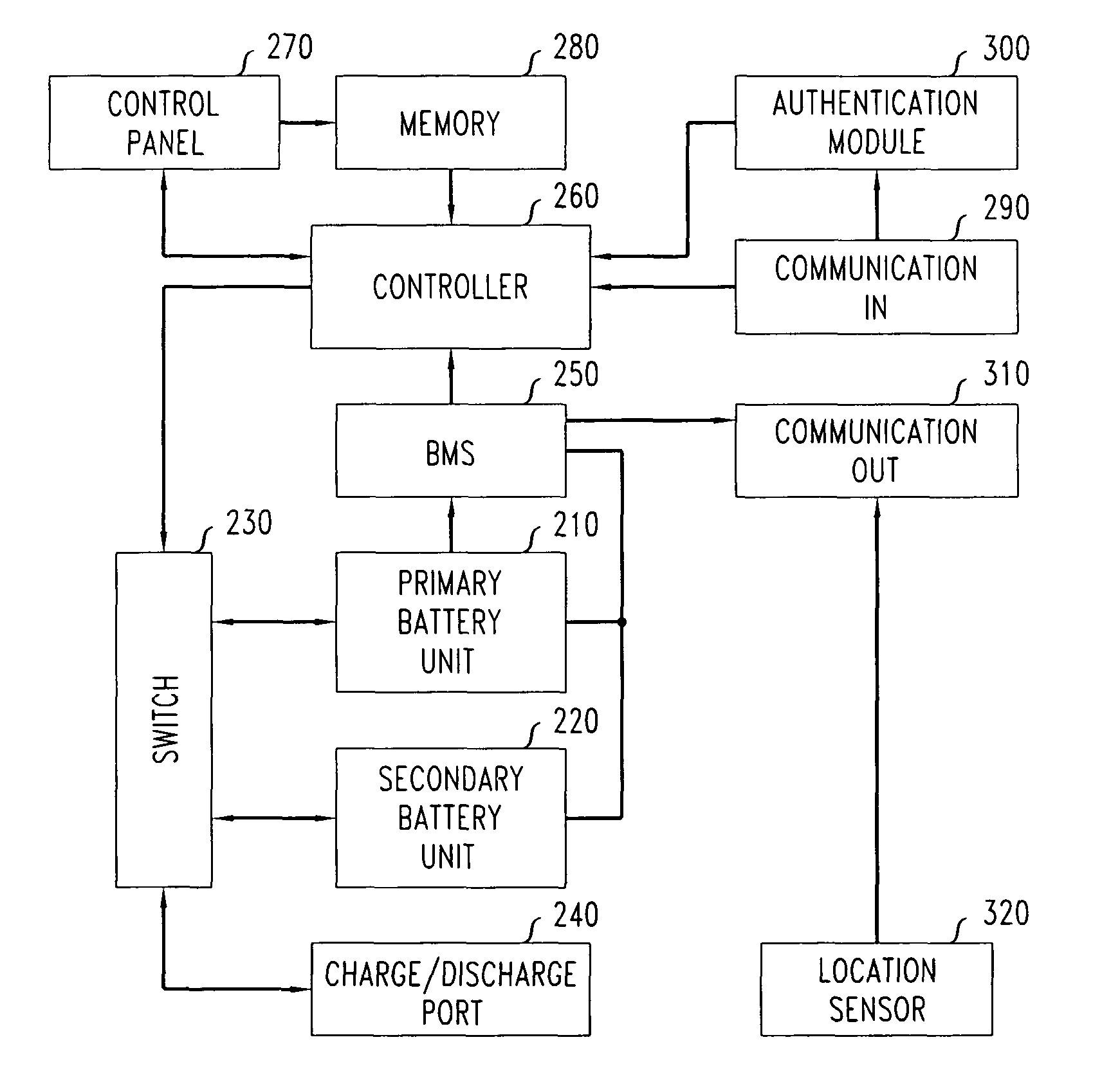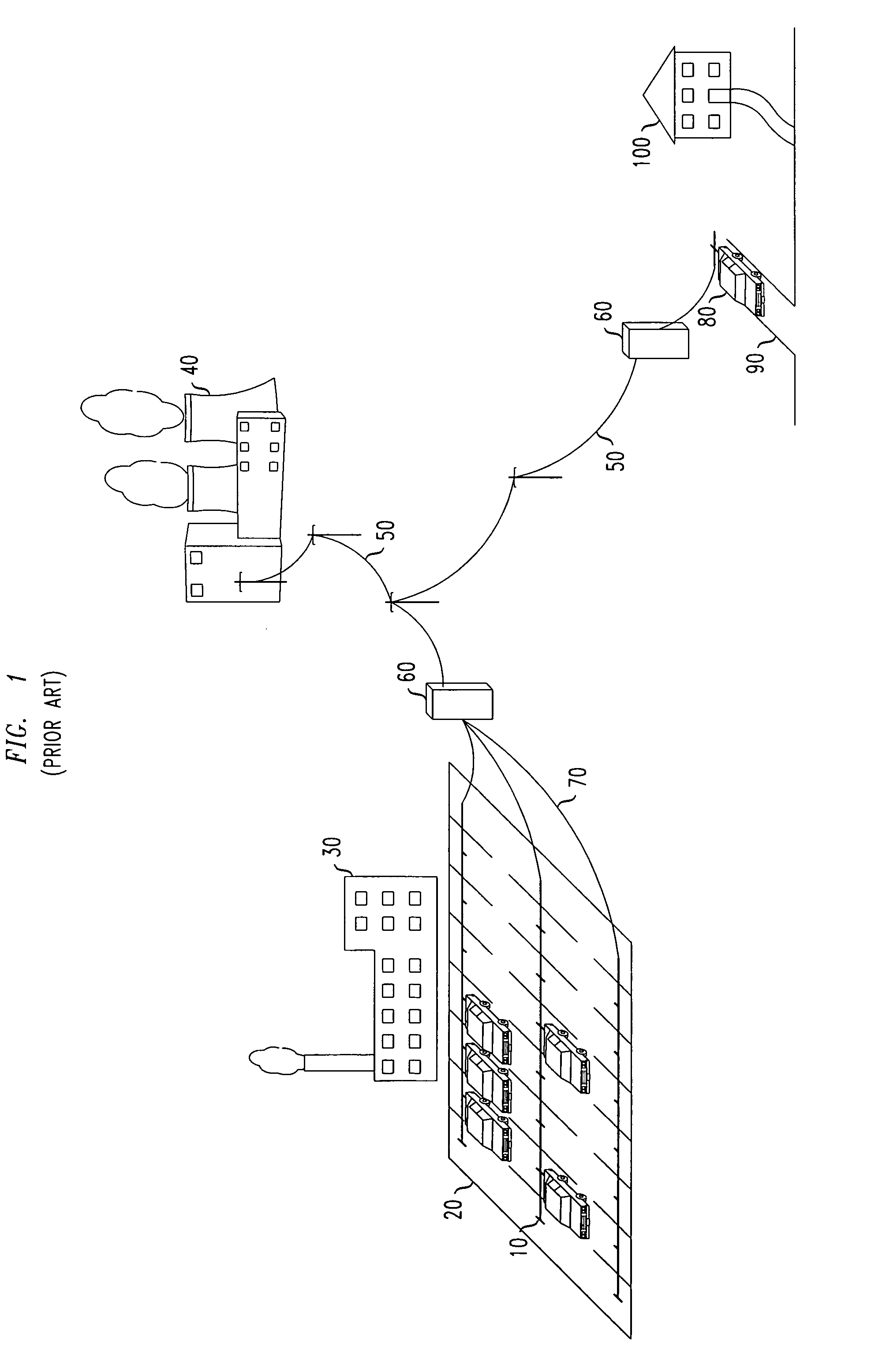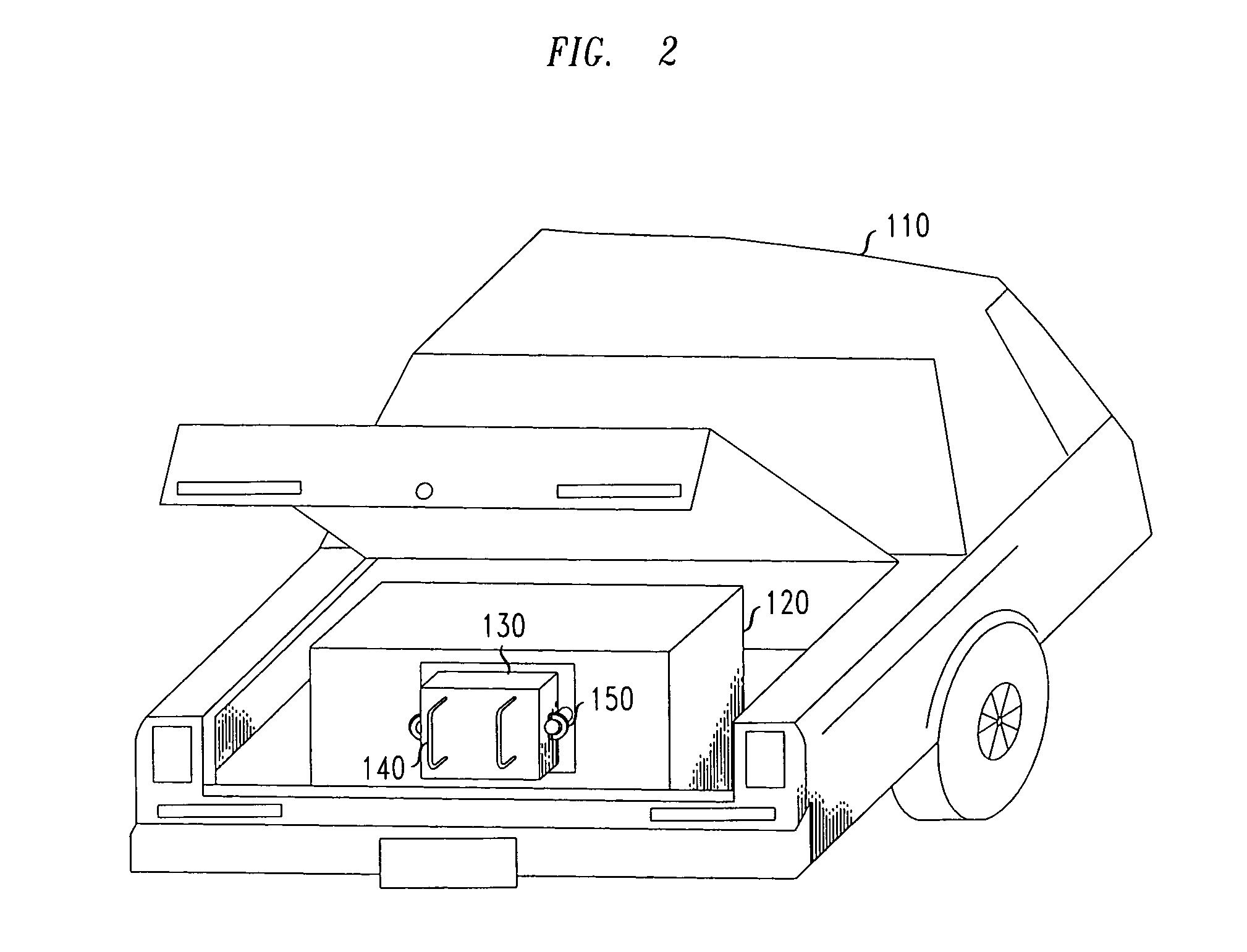Method and apparatus of stored energy management in battery powered vehicles
a technology of stored energy and battery power, applied in the direction of electrical generators, transportation and packaging, sustainable buildings, etc., can solve the problems of reducing the lifetime of the battery, and affecting the service life of the battery
- Summary
- Abstract
- Description
- Claims
- Application Information
AI Technical Summary
Benefits of technology
Problems solved by technology
Method used
Image
Examples
Embodiment Construction
[0021]FIG. 1 shows a typical scenario in which electric cars may be placed in contact with an electric utility for purposes of load balancing. Employee cars 10 are parked in parking lot 20 of workplace buildings 30. An electric power plant 40 is advantageously situated relatively nearby to minimize transport loss.
[0022]Power line 50 delivers electric power from the power plant to utility box 60, from which it is distributed to each of the parking spaces of lot 20 by conductive distribution lines 70. At each parking space, the electrical storage assembly of the respective car plugs into a receptacle (not shown) in electrical contact with one of the lines 70. The receptacle provides electrical continuity for charging and discharging the car's batteries.
[0023]It is also advantageous to provide a communication medium between the car and the electric utility, for example so that the utility can read the state of charge of the car batteries. Various alternative communication media are kno...
PUM
 Login to View More
Login to View More Abstract
Description
Claims
Application Information
 Login to View More
Login to View More - R&D
- Intellectual Property
- Life Sciences
- Materials
- Tech Scout
- Unparalleled Data Quality
- Higher Quality Content
- 60% Fewer Hallucinations
Browse by: Latest US Patents, China's latest patents, Technical Efficacy Thesaurus, Application Domain, Technology Topic, Popular Technical Reports.
© 2025 PatSnap. All rights reserved.Legal|Privacy policy|Modern Slavery Act Transparency Statement|Sitemap|About US| Contact US: help@patsnap.com



